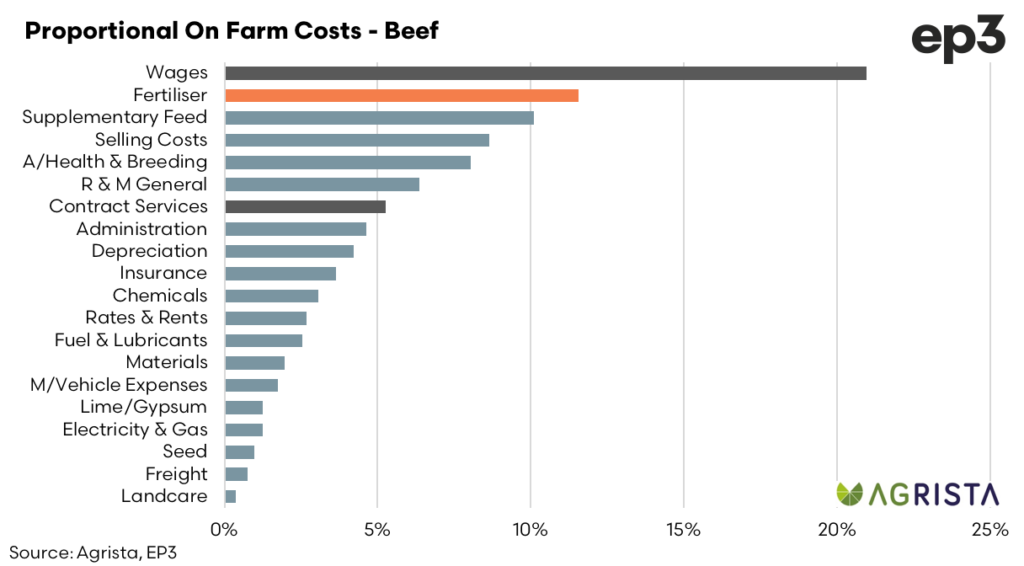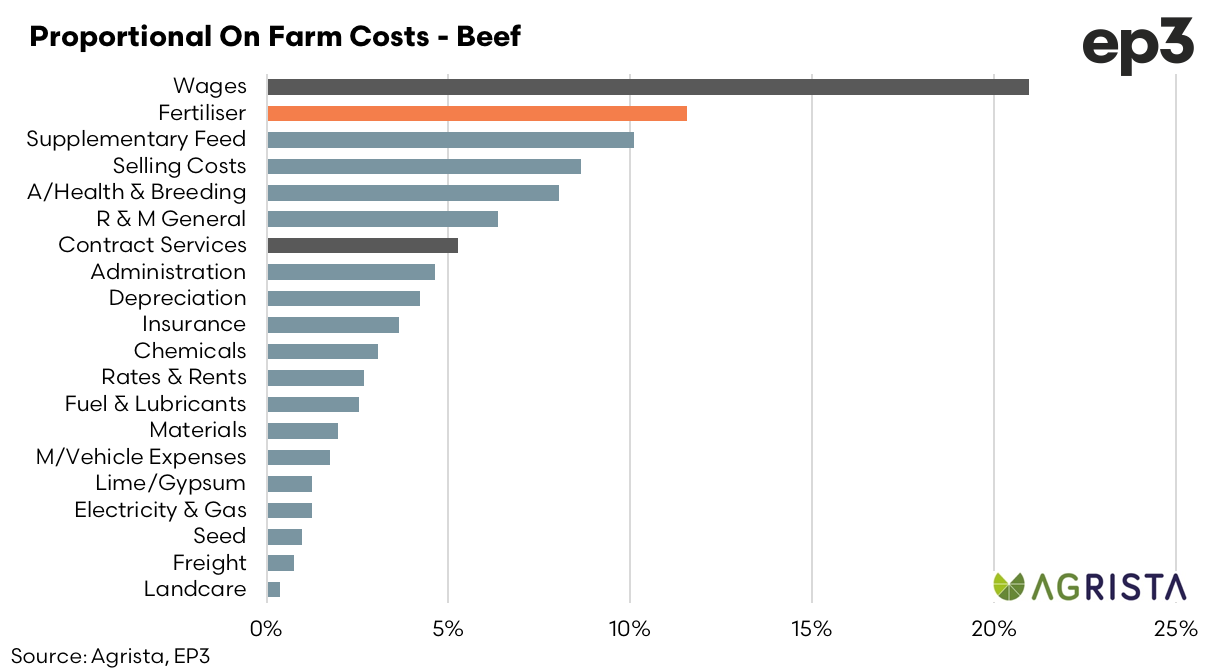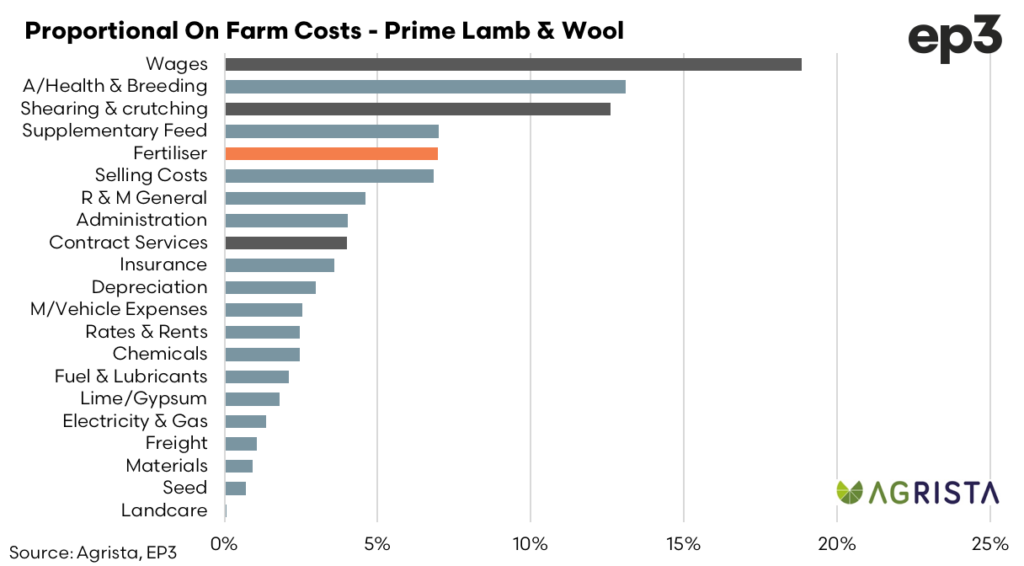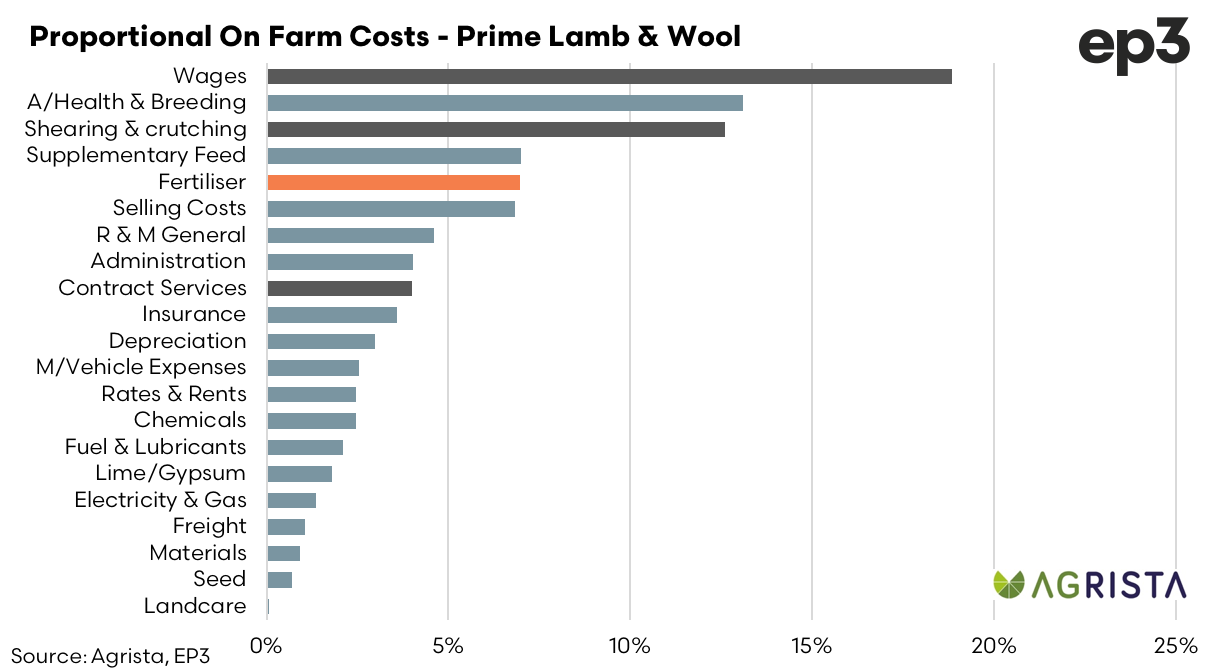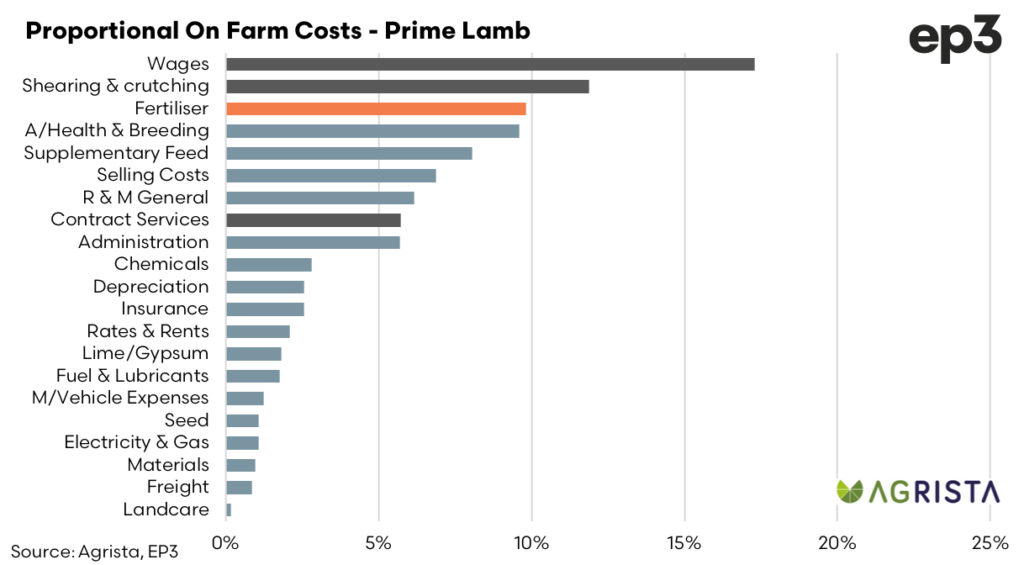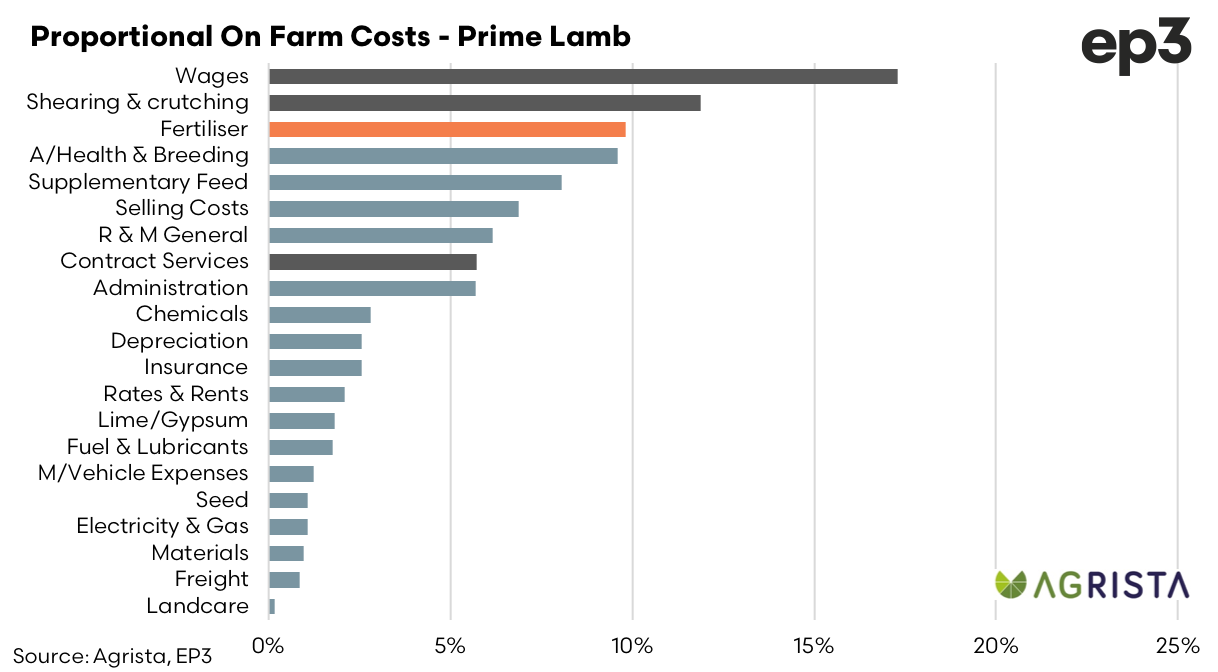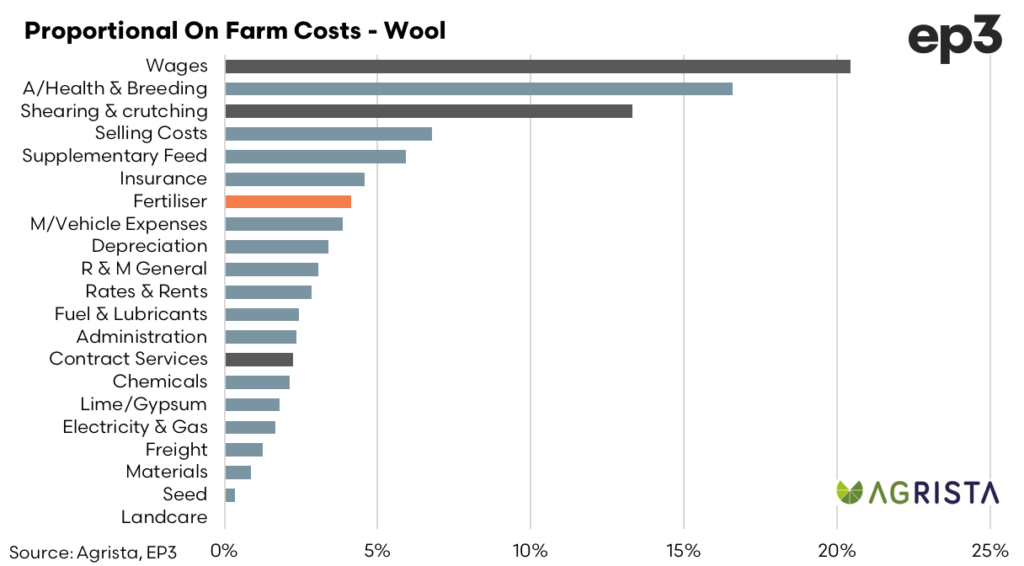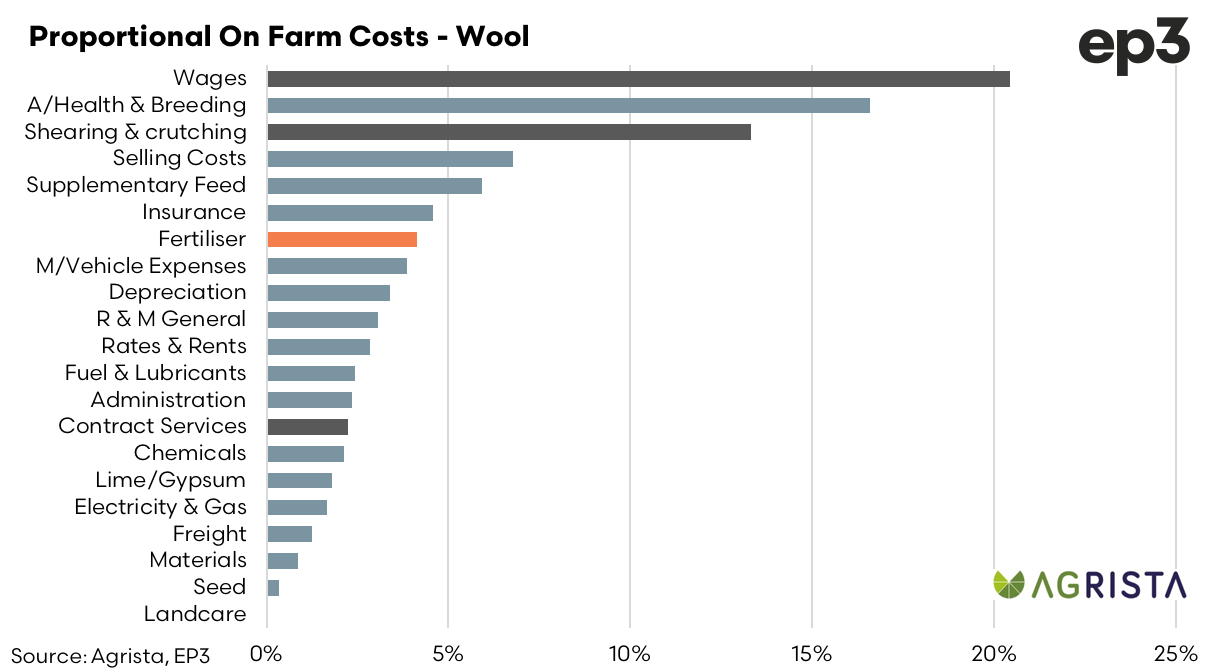Making ends meat.

The Snapshot
- For a beef enterprise, wages and contract service costs average around 26.0% of total farm costs.
- For a prime lamb or wool operation the addition of shearing and crutching costs sees the total labour spend blow out to 35.5% of total on-farm costs.
- Across all livestock enterprise types (beef, prime lamb and wool producing farms combined) fertiliser is the fourth costliest spend, at around 8.5% of total on farm costs, on average.
The Detail
A regular subscriber to Episode3.net would note that we are often discussing our concerns about the cost of labour, difficulties in finding agricultural workers and the ever increasing farm input costs, such as fertiliser. Analysis of the data supports our ongoing focus on labour market challenges facing the Australian agricultural sector and the opaqueness of price transparency in the local fertiliser market.
Data collected by agricultural consultancy firm, Agrista, showing average on farm proportional costs for beef, prime lamb and wool producing farms across Australia highlights that labour costs and fees spent on contract services, such as shearing and crutching for sheep based enterprises, feature as significant cost items in the farm budget.
For a beef enterprise, wages and contract service costs average around 26.0% of total farm costs, according to the Agrista data set. The wages bill for a beef farm, including any wages paid to the farm owner, accounts for around 21.0% of the total on farm spend. Meanwhile contracting services cost around 5.3%, on average.
For a prime lamb or wool operation the addition of shearing and crutching costs sees the total labour spend blow out to 35.5% of total on-farm costs. Filtering the data to compare prime lamb enterprises to wool enterprises individually shows some variation in cost proportions across the two enterprise types.
An average prime lamb enterprise spends about 17.3% on wages, 11.9% on shearing/crutching costs and 5.7% on other contract services. An average wool producing farm spends about 20.4% on wages, 13.3% on shearing/crutching costs and 2.2% on other contract services.
It’s not all bad news on the farm cost horizon though as we enter 2023. Global gas prices are in retreat and this means that at least on a overseas basis, fertiliser prices are also declining. The Agrista on farm cost data demonstrates that across all livestock enterprise types (beef, prime lamb and wool producing farms combined) fertiliser is the fourth costliest spend, at around 8.5% of total on farm costs, on average.
For a beef enterprise the fertiliser spend sits in second place in terms of the costliest spend behind wages and equates to 11.5% of total costs. Prime lamb and wool operations, combined, spend 7.0% of total costs on fertiliser, which is the fifth costliest spend.
However, as individual operations the prime lamb enterprise spends about 9.8% of their total costs on fertiliser, which is the third placed costliest spend behind wages and shearing/crutching costs. Meanwhile for a wool producing operation fertiliser costs account for just 4.1% of total costs and drops to seventh place, in terms of the costliest spend.
The global price of urea in the Middle East has come under considerable pressure since the start of 2023, dropping to A$645/mt on average for the month. This is great news for Australian producers, as this time last year it was priced at A$1090. The big question now is whether the current fall in the global fertiliser price will be passed onto local producers and how long the price adjustment will take, as historically price declines for fertiliser have been rather slow to show up in local prices.
The fertiliser importer will likely claim that we need to work through the leftover stocks of the more expensive product before local farmers can benefit from the global price declines, but that argument doesn’t hold for other global commodities so why should fertiliser be any different?



